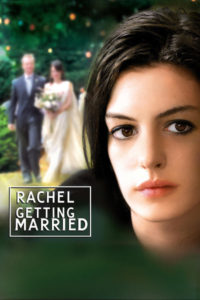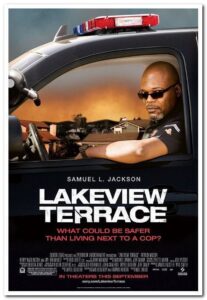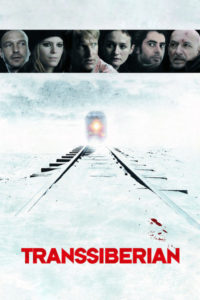
To say that the Jonathan Demme-directed
Rachel Getting Married is the role that Anne Hathaway (
The Princess Diaries, Love and Other Drugs) could be considered the ultimate compliment and, simultaneously, something that you hope isn’t true. I say that for a couple of reasons. First, if this is her crowning achievement, then what a movie to hang your hat on. With all due respect to 2012’s
Les Miserables, Hathaway’s one performance as of the end of 2018 that has earned her an Academy Award win, I have a difficult time comparing that movie to
Rachel Getting Married for no other reason than because while I have from time to time, I don’t typically review musicals. Much like documentaries or animated movies I never review, I wonder if I have much insight or more to offer regarding a singing film. With that said, I reviewed
Les Miserables and found Hathaway’s scene-stealing performance as Fantine to be the highlight of a movie and a story I enjoy.
Continue reading Rachel Getting Married (2008) →
 Many deem Christopher Nolan’s (Interstellar, Oppenheimer) The Dark Knight the best comic book movie ever. Those and others consider Nolan’s three Batman films the quintessential superhero trilogy. The Dark Knight is the franchise’s standout, successfully eclipsing the superhero genre and delivering an eerie tale of good versus evil that requires many chief characters to make layered, moral decisions at a moment’s notice. In particular, The Joker (Heath Ledger – Brokeback Mountain, Monster’s Ball), the film’s villain, continually requires its protagonists to choose between what is best for them and society’s greater good. Fans of superhero movies and those who traditionally have little to no interest in that genre can equally appreciate The Dark Knight.
Many deem Christopher Nolan’s (Interstellar, Oppenheimer) The Dark Knight the best comic book movie ever. Those and others consider Nolan’s three Batman films the quintessential superhero trilogy. The Dark Knight is the franchise’s standout, successfully eclipsing the superhero genre and delivering an eerie tale of good versus evil that requires many chief characters to make layered, moral decisions at a moment’s notice. In particular, The Joker (Heath Ledger – Brokeback Mountain, Monster’s Ball), the film’s villain, continually requires its protagonists to choose between what is best for them and society’s greater good. Fans of superhero movies and those who traditionally have little to no interest in that genre can equally appreciate The Dark Knight.
 Many deem Christopher Nolan’s (Interstellar, Oppenheimer) The Dark Knight the best comic book movie ever. Those and others consider Nolan’s three Batman films the quintessential superhero trilogy. The Dark Knight is the franchise’s standout, successfully eclipsing the superhero genre and delivering an eerie tale of good versus evil that requires many chief characters to make layered, moral decisions at a moment’s notice. In particular, The Joker (Heath Ledger – Brokeback Mountain, Monster’s Ball), the film’s villain, continually requires its protagonists to choose between what is best for them and society’s greater good. Fans of superhero movies and those who traditionally have little to no interest in that genre can equally appreciate The Dark Knight.
Many deem Christopher Nolan’s (Interstellar, Oppenheimer) The Dark Knight the best comic book movie ever. Those and others consider Nolan’s three Batman films the quintessential superhero trilogy. The Dark Knight is the franchise’s standout, successfully eclipsing the superhero genre and delivering an eerie tale of good versus evil that requires many chief characters to make layered, moral decisions at a moment’s notice. In particular, The Joker (Heath Ledger – Brokeback Mountain, Monster’s Ball), the film’s villain, continually requires its protagonists to choose between what is best for them and society’s greater good. Fans of superhero movies and those who traditionally have little to no interest in that genre can equally appreciate The Dark Knight.
 No Country for Old Men is the most well-received and
No Country for Old Men is the most well-received and  In the mold of great thrillers like Unlawful Entry, The Hand That Rocks the Cradle, Sleeping With the Enemy, Pacific Heights, Single White Female, and Deceived comes Neil LaBute’s (Death at a Funeral, The Wicker Man) 2008’s underappreciated Lakeview Terrace. This is a movie designed to elicit powerful reactions among its audiences. While this movie never felt that farfetched (until maybe its final scenes), it seems less like a fictional story than I believed it to be, given what we see daily about racism and racial violence as I write this in 2020.
In the mold of great thrillers like Unlawful Entry, The Hand That Rocks the Cradle, Sleeping With the Enemy, Pacific Heights, Single White Female, and Deceived comes Neil LaBute’s (Death at a Funeral, The Wicker Man) 2008’s underappreciated Lakeview Terrace. This is a movie designed to elicit powerful reactions among its audiences. While this movie never felt that farfetched (until maybe its final scenes), it seems less like a fictional story than I believed it to be, given what we see daily about racism and racial violence as I write this in 2020.
 At eight days, the Transsiberian Express from Beijing to Moscow is the longest train journey in the world. So why wouldn’t it be the perfect backdrop to one of the most suspenseful journeys in quite some time? Paul Anderson’s (Beirut, The Machinist) presents the Transsiberian in a way that makes you think of Alfred Hitchcock. It’s dark. It’s moody. It’s twisted. It’s purposeful. It’s rooted. It’s intense. It makes you feel like a fellow passenger on this train, watching everything unfold next to you rather than on a screen projected in front of you. Oh. And it’s cold. It’s like an Arctic cold. We feel that sense of dread in the deepest of winter in the coldest places. Yet, it never feels like we are even close to approaching freezing. So it certainly adds to the ambiance of our film.
At eight days, the Transsiberian Express from Beijing to Moscow is the longest train journey in the world. So why wouldn’t it be the perfect backdrop to one of the most suspenseful journeys in quite some time? Paul Anderson’s (Beirut, The Machinist) presents the Transsiberian in a way that makes you think of Alfred Hitchcock. It’s dark. It’s moody. It’s twisted. It’s purposeful. It’s rooted. It’s intense. It makes you feel like a fellow passenger on this train, watching everything unfold next to you rather than on a screen projected in front of you. Oh. And it’s cold. It’s like an Arctic cold. We feel that sense of dread in the deepest of winter in the coldest places. Yet, it never feels like we are even close to approaching freezing. So it certainly adds to the ambiance of our film.
 To say that the Jonathan Demme-directed Rachel Getting Married is the role that Anne Hathaway (The Princess Diaries,
To say that the Jonathan Demme-directed Rachel Getting Married is the role that Anne Hathaway (The Princess Diaries,